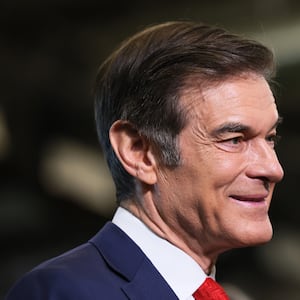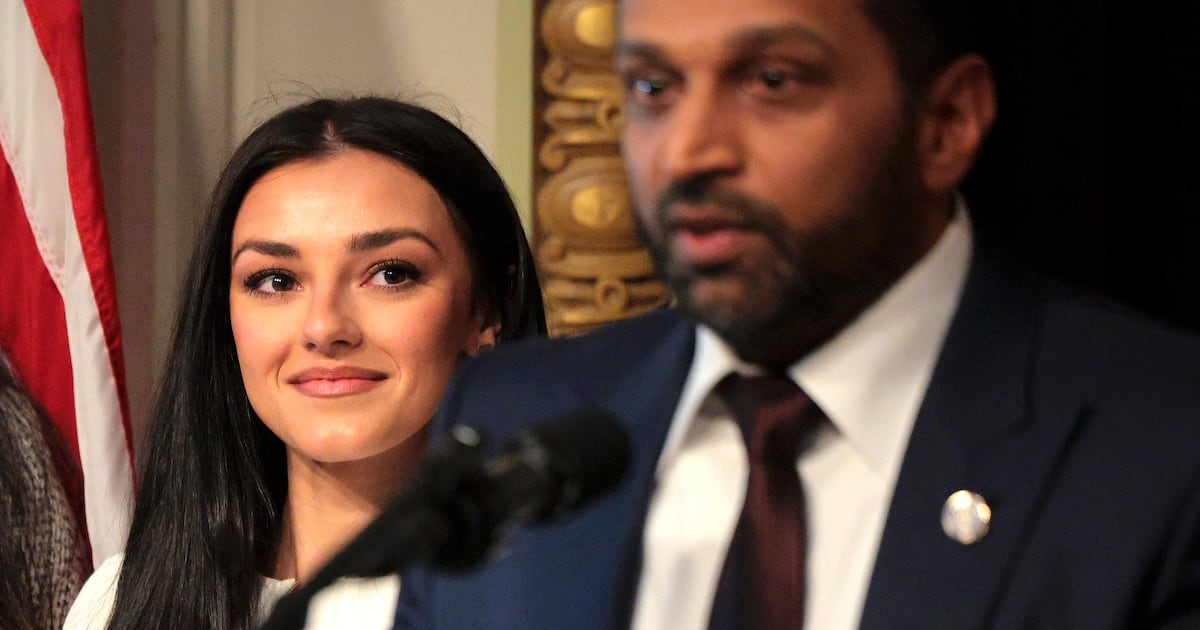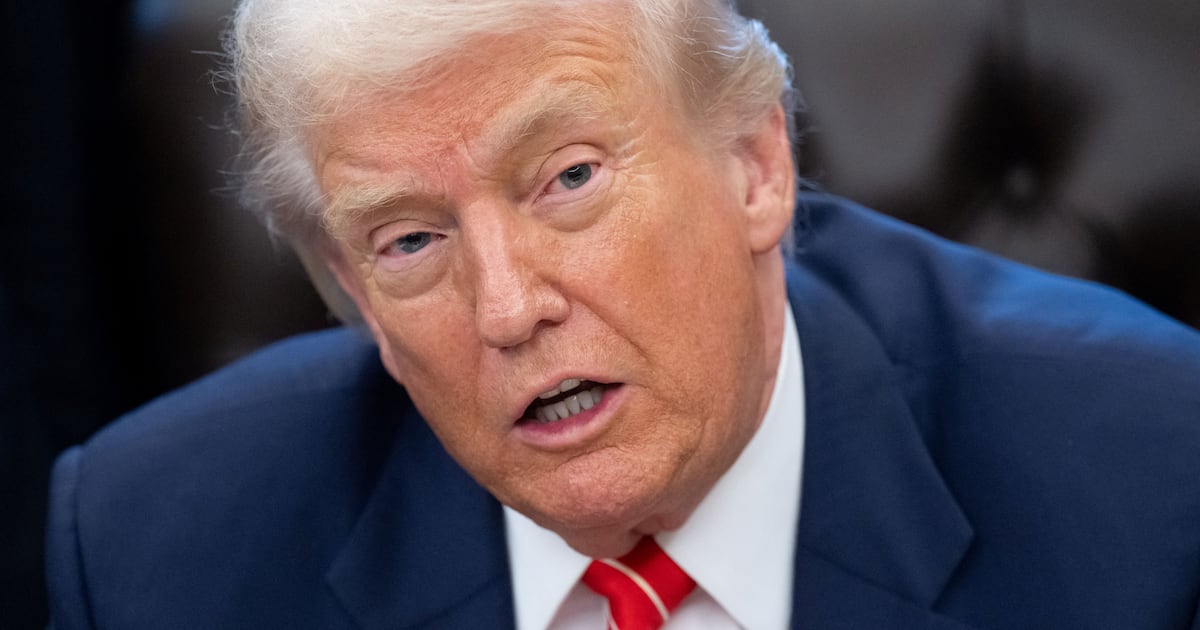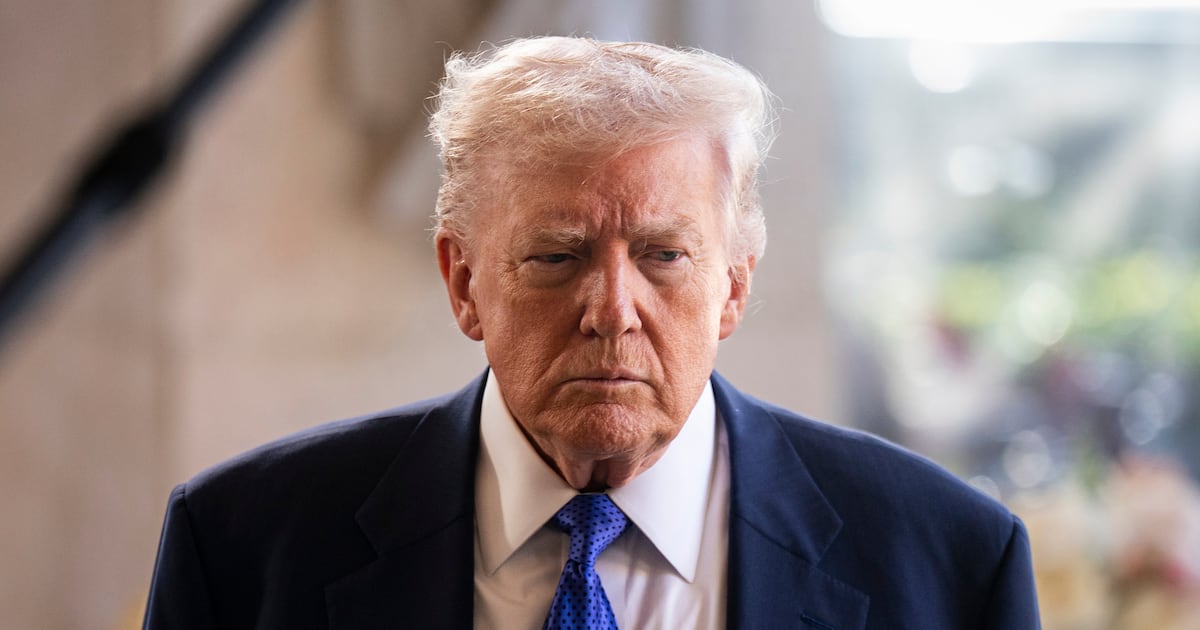Last month, Dr. Mehmet Oz drew a hard line between his two competing selves—his life as a physician, and his newfound identity as a Republican candidate for Senate.
“When you mix politics and medicine, you get politics,” Oz said in an interview on the right-leaning Real America’s Voice network in May. “We cannot hurt our children by doing that again.”
Oz wasn’t exactly talking about himself; he was making a point about transgender children. But the way he’s cleaved his past medical expertise from his present personality as a political candidate, he very well could have been.
For years, millions of viewers tuned in to Oz’s Oprah-boosted daytime talk show for a medical expert’s take on the issues of the day. But now, the issues of the day appear to have the upper hand, as Oz abandons his previous medical opinions for right-wing political appeal.
Daniel Summers, a Boston-area pediatrician and writer, pointed to Oz’s slow but steady descent into quackery as his fame increased, adding that this thirst for attention has only sharpened with his Senate run.
“Throughout his career in the public eye, Oz has shown a distressing willingness to say or do things he knows aren’t backed by medical science in service to his own fame,” Summers told The Daily Beast, citing Oz’s promos for snake-oil supplements and unproven COVID treatments.
“It’s only going to get worse as he tries to entice people to vote for him,” Summers continued. “Medical facts will take a backseat to whatever he thinks he’ll need to say to win. The hard-won credibility his expertise as a surgeon got him has been sold cheap for the favor of voters who’d rather be told what they want to hear than what science actually says.”
Since announcing his Senate bid last November, Oz has walked back previous positions on a number of health-related matters, including gun control, abortion, transgender acceptance issues, and euthanasia—all of which he was for, and is now against.

Dr. Oz and Michelle Obama on the “Dr. Oz Show” in 2012.
Sony Pictures Television/Everett CollectionOz has even availed himself of the opportunity to weigh in as a physician on fracking, which he repeatedly opposed on public health grounds before endorsing the practice as a candidate.
The falling dominoes have drawn criticism from Democrats as well as from within the Republican tent, and even appear to have tripped a long-awaited decision at his longtime employer, Columbia University Medical Center, which, as The Daily Beast reported, quietly cut ties with Oz this winter.
His most recent about-face came in April, when Oz slapped his name on the American Principles Project’s “Big Family Pledge.” It was a three-for-one special, where Oz simultaneously swore to push back on transgender issues, protect life at “conception,” and support “natural death”—a departure from his yearslong advocacy of a patient’s right to die.
He had used that same phrase in the opening sentence to an op-ed the previous month.
“From the moment of conception to natural death, all life is a miracle,” Oz wrote.
That’s a far cry from his previous convictions. In fact, just three years ago, Oz had a very different take on when life begins and abortion.
“If you’re going to define life by a beating heart, then make it a beating heart, not little electrical exchanges in the cell that no one would hear or think about as a heart,” Oz said in a 2019 interview, as The Daily Beast reported in December. That kind of emotionally manipulative language, he observed, can mislead the average person into “envisioning a little acorn heart beating in there, and that’s not what’s going on at six weeks.”
In the same interview, Oz defended Roe v. Wade from a medical perspective—specifically in opposition to the Mississippi 15-week abortion ban which now appears to be the Supreme Court’s vehicle of choice to overturn Roe (and a vehicle of choice for Oz to raise money).

Dr. Oz with host Harris Faulkner as he visits “Outnumbered Overtime” at Fox News Channel Studios on March 9, 2020, in New York City.
Roy Rochlin/Getty“I went to medical school in Philadelphia, and I saw women who had coat-hanger events,” he said at the time. “And I mean really traumatic events that happened when they were younger, before Roe v. Wade. And many of them were harmed for life.”
As for “natural death,” Oz has until apparently recently been a proponent of euthanasia, or physician-assisted suicide.
He even weighed in on perhaps the highest-profile case in recent memory, the 2005 death of Terri Schiavo, a Florida insurance office clerk who spent her last decade on life support in a vegetative state.
At the time, the country got swept up in a politically charged debate over whether Schiavo’s husband had the right to remove her feeding tube. The legal battle dragged on for years, reaching both Congress and the Supreme Court and splitting public opinion along religious and partisan lines. All the while, Schiavo herself lay brain-dead. Her husband eventually prevailed, and Schiavo died days after he removed the feeding tube in March 2005.
In 2008, Oz called the saga “a very embarrassing one for this country,” and publicly backed the husband’s right “to make a decision” without government intervention.
Those remarks came in an interview with the National Review of Medicine, which had pitched the question in a political context: Oz’s campaign contributions to physician and former Senate Majority Leader Bill Frist (R-TN), who—before he became a board member at Theranos in 2014—caught backlash for diagnosing Terri Schiavo from afar.
“The Terri Schiavo incident was a very embarrassing one for this country. Most people feel that families should have the right to make a decision about the death of a loved one without everyone looking in—and without Congress creating a new session in order to legislate what should be done,” Oz said.
“The husband was probably right in that case,” Oz added, “and he had his legal right to do what’s best for the woman he loved and loved him without people interfering from the outside.”
It wasn’t a one-off. Three years later, Oz dedicated an episode of his talk show to the issue, mounting an impassioned defense of a physician’s right to help terminally ill patients end their lives, should they choose. The episode reportedly generated the most web traffic in the show’s history up to that point.
“I believe that if someone is terminally ill and at a point which they feel they can no longer continue to enjoy any quality of life—they’ve lost their dignity—their doctor should be able to legally prescribe medication to help them end their lives with that dignity,” Oz said at one point in the program. “Because, for me, that’s what it’s all about—and I believe that doctors should be able to help patients even more in desperate situations.”
Oz also made clear he was speaking not just as a television personality, but as a medical professional.
“Much of [my opinion] evolved in my practice of cardiac surgery,” he told The New York Post in an interview about the episode, describing the heartbreak of watching loved ones “melting away in the ICU.”
“It’s a huge emotional burden to put on a family,” Oz said. For physicians like himself, he added, it is “part of our healing responsibility to take that burden off.”
Asked if he had second thoughts about airing that opinion to the public, Oz replied that since he had felt strongly enough to discuss the matter with his own family, “I owe it to our audience that trusts me to tell them the same thing.”
For years—on his show, in syndicated columns, and on social media—Oz warned the same trusting audience of another “public health crisis”: gun violence.

Ben Carson looks on as Dr. Oz checks the blood pressure of an attendee during a campaign event for in Bristol, Pennsylvania, on April 21, 2022.
Hannah Beier/ReutersOver that time, Oz backed a slew of measures, from red flag laws and expanded background checks all the way up to buyback programs. One column called to “Reinstitute the assault rifle ban” of 1994, and floated the idea of New Zealand-style gun buybacks, stating that gun violence “damages the quality of life of every person in the U.S.”
The article even showed a flair for big government, claiming that the cost of living, and dying, with guns “shortchanges what your government could do for education, infrastructure, health care and more.”
Fox News claimed in March that Oz’s associate was now taking credit for the columns, and that Oz himself had disavowed the sentiments. But the associate’s statement to Fox did not specify which columns he had written alone, and Oz’s statement did not explicitly disavow his previous sentiments, which, again, he had expressed for years.
Oz did not reply to The Daily Beast’s request for comment.
Oz has also recently tried to reconcile his apparently dissonant position on transgender issues.
In February, allies of his opponent David McCormick lashed Oz for a 2012 special dedicated to exploring how transgender care decisions in children can impact families. In that episode, Oz asks a young girl, onstage with her mother, to recall how she felt when her parents thought she was a boy.
But with conservatives barking about transgender issues with increasing fervor, Oz has tried to turn the science inside out.
In the above mentioned Real America’s Voice interview, which aired May 16, he said without evidence that liberal views on transgender rights with children were “based on false science,” claiming that “85% of young children who say they’re transgender will go back to their biologic sex, if they’re just loved and let be.”
“Johnny will walk around in mommy’s shoes for a while, and he’ll figure it out and go back to the way he was biologically conceived,” Oz said.
But when the host pressed Oz on the issue of prescribing puberty-blockers, the once-acclaimed surgeon found his feet.
“I don’t want to interfere with doctors and parents working together,” he replied. “That’s something that as a physician I feel very strongly about. There’s a precious covenant that we have there.”









